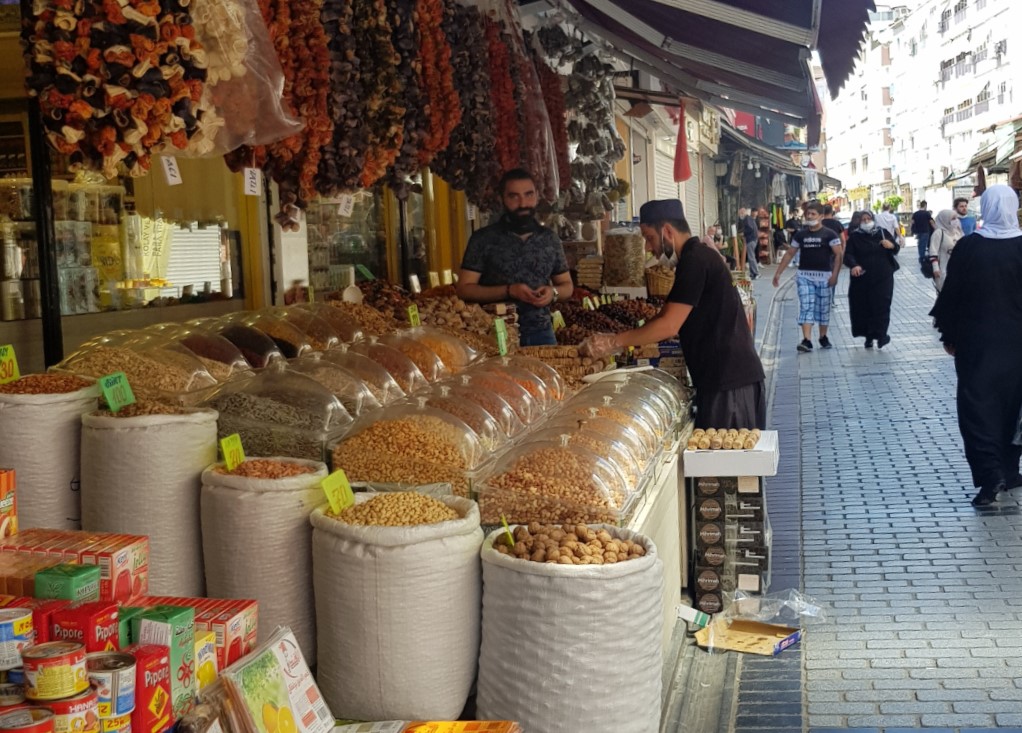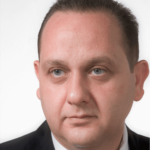In one of the very few countries that have blocked the Syrian vote in the presidential elections that are all but guaranteed to give Bashar Assad a fourth seven-year term as president, it doesn’t really bother this shop assistant to give it a miss altogether.
At Fatih bazaar in Istanbul, Turkey, Ahmed Naima’s agony is that Assad is going to stay in the picture for another seven years.
“It’s a farce. The so-called elections are another black comedy that is going to stay with us for a long time. The world doesn’t listen to us… doesn’t help us,” said Ahmed, a university graduate who settled for a shop assistant’s job in Turkey’s most populous city.
Syrians living abroad and those who fled the war started casting their votes at embassies and consulates on May 20, ahead of the May 26 vote inside the country. But Turkey and Germany, both of which host large Syrian refugee communities, have blocked the elections.
In Canada, the 77,000-strong Syrian diaspora including nearly 60,000 refugees who have resettled here since the start of the civil war can cast their votes.
Last week, Damascus criticized the countries that blocked the vote, describing the German decision as a “flagrant assault on the rights and freedom of the Syrians.” France was also reprimanded.
But Ahmed, and many other Syrians I talked to, showed me social media jokes on his cellphone, all describing the vote as a farce.
“There are no signs at all that the (Syrian) Consulate in Istanbul would defy the Turkish block. There are definitely supporters of Assad here, who are not happy. But the majority of Syrians living in Turkey are those who have fled the war,” said Ahmed.
“Everyone knows what the outcome will be”
The election will be the second one since civil war erupted in 2011. The conflict has killed almost 400,000 people and drove more than half of Syria’s pre-war population out of the country.
“We never voted in a free and fair election. Would anyone in this foreign land or anywhere in the world believe this farce,” said Abu Rafed Mohammed, a taxi driver. “Everyone knows what the outcome will be.”
The election is also seen by the Syrian opposition as an instrument to give legitimacy to the current president.
Other Western governments, seemingly opposed to Assad, have criticized the election, labelling it as “illegitimate.” France said the elections would not provide a path to end the crisis but, like many countries, allowed the vote to take place on its territory.
The Syrian government responded by saying the elections are a sovereign matter. A Foreign Ministry official said the “large numbers of Syrians casting their votes at (Syrian embassies and consulates) polling stations around the world, including Paris, represent the most resounding response against these statements.”
Obscure contenders
Assad is facing competition from just two little-known candidates as the supreme constitutional court had approved only three out of 51 candidate applications.
One of them is Mahmoud Muri, who took part in UN-sponsored peace talks in Geneva. Muri urged Syrians on state television to go and cast their votes in the name of “democracy … and freedoms … and select the most efficient (candidate) to lead Syria in the coming phase.”
He also called for “the release of detainees and the return of the displaced people,” and said, “there are friendly and neutral nations in which Syrian citizens have cast their votes freely.”
The other Assad opponent is Abdallah Salloum Abdallah, a former member of Syria’s legislative authority and another little-known personality. He openly admitted having accepted to run for president after being nominated by his Social Unitarians Party.
Assad’s Arab Socialist Ba’ath Party has held power in Syria since the early 1960s, including around 20 years under his rule. Assad’s father, Hafez, ruled Syria for three decades before that. In 2014, Bashar Assad won the elections in a landslide history, getting close to 89 per cent of the vote.
Syrian elections as an excuse to resurrect a statesman?
The elections come after years of UN-backed efforts aimed at ending the war, including the formation of a transitional body and rewriting the Syrian constitution in order to hold free and fair elections subject to international monitoring.
The vote also comes amid levels of poverty never experienced in Syria’s modern history; the Syrian pound’s depreciation in the recent months has thrown around 90 per cent of people into extreme deprivation.
After a decade of civil war, opposition to Assad by Western and some Arab countries looks more like deep apathy or resignation to Assad’s continuation as a leader.
Many Syrians fear the elections could be another attempt, of an unceasing wave of attempts, to float the idea that Bashar Assad is a reformist and the de facto leader, having defeated his opponents with the help of the Russians and the Iranians.
These attempts started almost three years after the uprising against his rule began. The country, once known as the “beating heart of Arabism,” is literally divided among several powers: US troops are in eastern Syria, the Russians in the coastal and government-controlled regions, Turkey in the north, Israel in the south, and Iranian-backed militias as well as extremist Daesh in central parts.
The Syrian scene also cannot possibly be viewed as separate from the recent geopolitical developments in the Middle East, including the Israel-Gaza conflict and the shaky ceasefire. These developments could mean new realities for the country.
The region may be poised for changes that would be the most significant since the 1916 Sykes-Picot Agreement between France and Great Britain, which resulted in the division of that part of the Arab region into several countries.
Hakam Kherallah is a veteran Toronto-based Arab Canadian journalist of Syrian descent. He is a member of the NCM Collective.






“In Canada, the 77,000-strong Syrian diaspora including nearly 60,000 refugees who have resettled here since the start of the civil war can cast their votes.” This is not correct. Further, Canada has closed the Syrian embassy and consulates with the exception of an honorary consul in Vancouver. The Trudeau policy is an extension of the Harper policy, which also blocked Syrian Canadians from voting in the 2014 presidential elections, of which I was an international observer. The writer also does not characterize what constitutes a free election. In one day I visited seven polling stations, and did not see any technical violations of the voting process. Rather there were rallies everywhere. In 2014, there were also three candidates, one from the Communist Party who received 500,000. Apparently the communists do not constitute the legitimate “opposition” officially recognized by NATO, Canada, Germany, Turkey, etc!